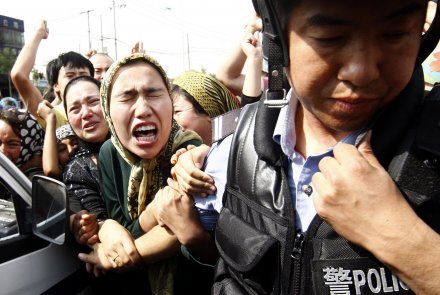
Image by EPA/OLIVER WEIKEN
China’s troubled borderlands
From protests in Tibet, to terror attacks in Xinjiang, China’s western borderlands are increasingly a flashpoint that Beijing is struggling to deal with.
Now a new book, edited by Crawford School’s Ben Hillman, brings together new research on a region that remains difficult for academics to access or report on.
The book, Ethnic Conflict & Protest in Tibet & Xinjiang, looks at the causes and consequences of ethnic conflict and ethnic protest in the region, what China is doing about it, and whether those measures will ultimately help.
Dr Hillman said it was a challenge to gather together the essays as few scholars are able to gain access to the region.
“Tibet and Xinjiang are highly sensitive topics in China … The Chinese government’s official view is that unrest in Tibetan and Uighur areas is being manipulated and orchestrated by external forces seeking independence from China, which raises national security concerns.
“Chinese authorities are generally suspicious of foreigners, especially Westerners, who are interested in this region. This creates problems for independent researchers and journalists,” he said.
Contributors to the book look at China’s attempts to deal with the unrest and find that far from helping, they could be exacerbating problems.
“As China expands trade ties with Central and South Asia under the aegis of its One Belt, One Road strategy, authorities will be more determined to keep a lid on unrest in Tibet and Xinjiang,” said Hillman.
“Because dissent in the region is now characterised as a security threat, any form of protest, including complaints filed through formal government mechanisms will be dealt with harshly.
“Ultimately, I think Beijing is confident that its carrot-and-stick approach to the region will work in the long run. The research in our volume suggests this is a misreading of Uighur and Tibetan concerns.”
Read a Q&A with Ben Hillman and his co-editor Gray Tuttle on the New York Times website.
Ethnic Conflict & Protest in Tibet & Xinjiang is published by Columbia University Press.
Updated: 12 July 2024/Responsible Officer: Crawford Engagement/Page Contact: CAP Web Team













